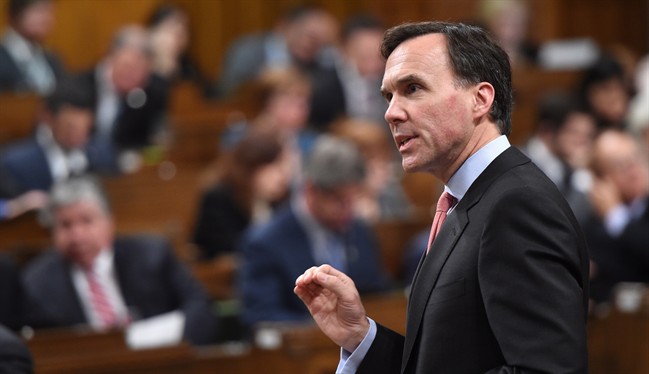As Finance Minister Bill Morneau puts the final touches on the federal government’s 2017 budget, scheduled for March 22, we have seen and we will continue to see everyone with a vested interest offering advice and every pundit offering their views on what will and won’t be in the budget.

- Will the big city mayors get the funds they want to address the critical shortage of affordable housing across the country?
- Will the prime minister be able to deliver the change he says is required to restore faith in the middle class and the aspiring middle class as he warned must occur in his recent speech in Hamburg when he said “It’s time to get real about the challenges facing the middle class?”
The evening of budget day and for several days after, these same pundits and stakeholders will provide their instant assessment ranging from what the budget means for average Canadians to what it means for the political fortunes of the government and the opposition parties. Before this analysis fills the news and captivates our social media conversations, I thought it might be interesting to look back and see what has changed since last year’s budget.
READ MORE: A look at what could come from the 2017 budget
The 2016 budget was the Trudeau government’s first real chance to fulfill promises and meet expectations that were created during the 2015 election. Some of the 2016 budget’s highlights included larger than expected deficits, an infrastructure program to boost the economy and an increased tax on the infamous “one per cent” in order to provide middle class tax relief and to help pay for the Child Tax Benefit. There was no money for health care in that budget but the government has made some progress with some of the provinces on that front of late.
WATCH: Federal budget to be presented on March 22: Bill Morneau

With full recognition that the wheels of government turn very slowly (infrastructure dollars have not flown out as quickly or had the economic boost most hoped for and April will see the first round of income filing where the 2016 budget measures are in place) let’s look at was has changed.
Do we think the country is headed in the right direction? Let’s call this a draw. Forty-six per cent of Canadians said we were headed in the right direction in February 2016 and today 48 per cent of Canadians feel the same.
Do we feel better about the economy? Yes, but it hasn’t trickled down to our pocketbooks yet. Views that the national economy is performing well have increased from 34 per cent in February 2016 to 55 per cent today and a similar jump has occurred when we ask about regional economies (from 21 per cent to 35 per cent). However, when we ask Canadians about their personal finances 35 per cent describe them as positive, up ever so slightly from 32 per cent in February 2016.
READ MORE: Canadian confidence in economy at its lowest in over 20 years: Ipsos poll
Finally, has anything changed with regard to the big issues concerning Canadians? There has been little movement on health care with 35 per cent citing it as a concern down from 38 per cent in March 2016. While there has been some improvement on the economic front with fewer saying that unemployment is a concern (from 45 per cent to 38 per cent) this seems to have been offset by an increased concern around taxes which has climbed from 31 per cent to 39 per cent.
Interestingly, despite the immigration turmoil being created south of the border, the recent debate in the House of Commons over Islamophobia and an increasing number of news stories about refugees crossing into Canada, there has been almost no change in concern over immigration control (from 20 per cent to 18 per cent).
All this to say, that as you watch, read and listen to budget 2017 unfold and try to determine who are the winners and losers and what impact it will have on Canadians, remember that government policy is a long-term game.
It’s less like the Oscars where we will know the winners at the end of the night and a lot more like the NHL season where the playoffs haven’t even started. So if you are inclined to follow the budget coverage, enjoy the moment with the knowledge that we likely really won’t know who the winners are until the next election.



Comments